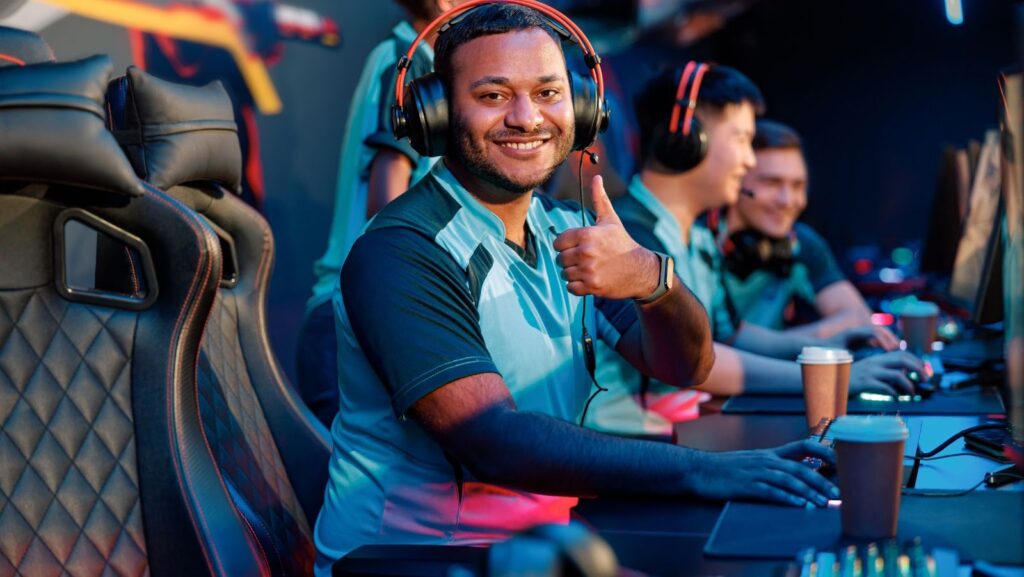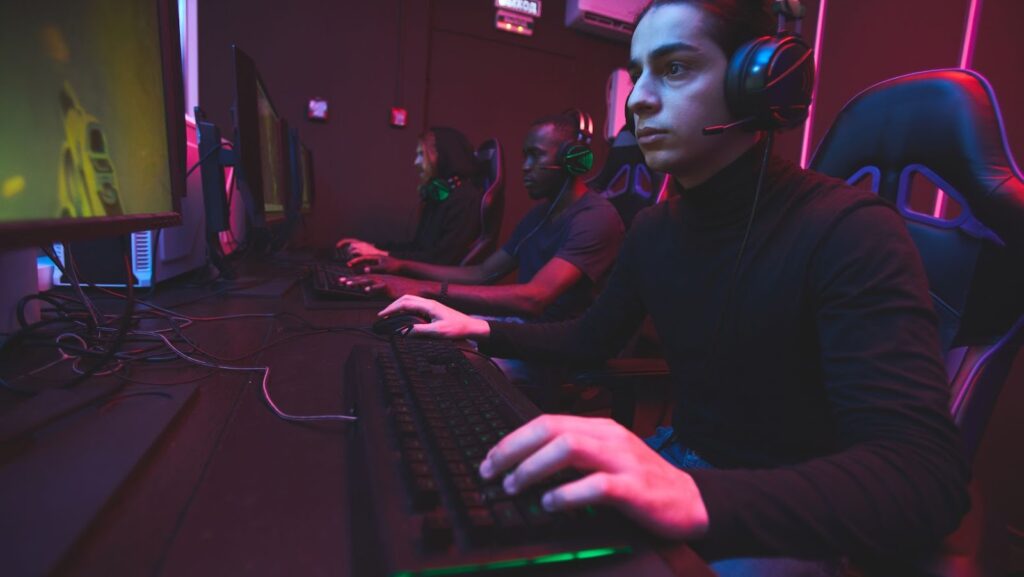Esports is an emerging form of entertainment and competition, where players or teams compete against each other in video games. Over the past few years, esports has become more popular, and many are now looking towards its potential inclusion in the Olympic Games.
However, there are certain challenges that need to be considered before adding esports to the Olympics. In this paper, we will discuss the possible solutions for these challenges, with a focus on how issues such as game choice and regulations can be addressed. We will also consider how these solutions could impact wider aspects of esports such as viewership and sponsorship opportunities.
Through this analysis, we will be able to determine whether esports can truly become an Olympic discipline and provide guidance on how to best make it happen.
Could Esports be in the Olympics
The inclusion of esports in the Olympics is becoming an increasingly popular topic of debate. There are many unique challenges that arise from incorporating esports into the Olympic Games, from ensuring fair play to creating a way to integrate these games into the Olympics. In this article, we will discuss the various challenges associated with esports in the Olympics and provide possible solutions for each.
Lack of International Recognition
One of the main challenges facing organizers when considering adding esports to the Olympics program is lack of international recognition. Many countries do not have laws or regulations regarding esports and even fewer have national governing bodies. This makes it difficult for these countries to have their athletes compete in global events and be considered for the Olympics.
Despite this challenge, some nations, like South Korea, Japan, and Germany, have taken steps towards recognizing esports as an official sport by including it in their educational curricula or officially sanctioning competitions. This has allowed esports to grow in popularity and legitimize itself as a bona fide form of competition.
Furthermore, some regional organizations like the Olympic Council of Asia (OCA) have already begun organizing official esports events such as the Asian Indoor and Martial Arts Games (AIMAG). The success of these events could potentially open up more opportunities for additional nations to participate in other global tournaments such as the Olympics.
At the same time, international recognition is still a challenge that needs to be addressed on a larger scale so that all possible countries are able to draw upon this recognition and competently compete at an Olympic level. Solutions towards promoting visibility within international sporting organizations require concerted efforts from both game developers/publishers alongside national authorities as well as stakeholders from diverse sports federations who embrace esports as an emerging sector within their field of interest.
Lack of Regulation
One of the major challenges that haunts the process of incorporating esports in the Olympics is the lack of regulation. Esports lacks an overarching governing body like FIFA, which governs football games. Moreover, since it is still considered a new and rapidly growing industry, there are questions regarding its organization and regulation at an international level. As a result, different leagues from different countries have adapted their own approaches on regulating esports — some emphasize skills development and youth competition, while others focus mainly on guiding rules for professional competitions.

Furthermore, each game has its own set of rules and game operating systems that can create confusion if standardized policies are not established. Esports needs to reach a consensus across all stakeholders in terms of regulations, rules and fair play in order to be considered a legitimate form of sports by the International Olympic Committee (IOC). Additionally, more research needs to be done or better policies need to be put in place for esports players to ensure developments such as protecting players from overwork burnout or medical care for injuries resulting from intense gaming sessions. Until such policies have been established at both regional and organizational levels within the industry – it will remain difficult for Esports to be incorporated into the Olympics properly.
Age and Gender Restrictions
In order for esports to become an official Olympic sport, there must be standard regulations with regard to age and gender. The International Olympic Committee (IOC) has required that all participants be over the age of 15 and that most sports include both male and female competitors. This requirement also applies to esports, as the IOC feels it is essential for all athletes to be given equal opportunities regardless of their gender or age.
The difficulty lies in determining how to enforce these standards across the various countries in which video games are popular. In many locations, access to games may be limited by socio-economic factors such as poverty or lack of infrastructure; therefore, potential players may not have access to what they need in order to compete in an Olympic-level gaming tournament. Additionally, there is a wide variety of games and consoles available around the world which could make it difficult for international bodies such as the IOC or Game Consultant Bodies to agree on standard regulations for each game or console type that can be accepted for inclusion into the Olympics.
Furthermore, due diligence will also need to be taken into account with regard to young players’ health issues such as video game addiction, stress on school performance etc., which may arise from participation in intense gaming tournaments. It is thus important that appropriate measures should be taken at national level by each country before they allow any gamer under their jurisdiction join an eSports tournament with potential relevance at Olympic level. With these considerations taken into account it might then prove possible for esports to reach its ultimate goal of becoming an official Olympic Sport.
Possible Solutions
The introduction of esports into the Olympics has been a topic of discussion for many years. Before esports can truly become part of the official Olympic family, the issue of governance, competition standards and overlap with existing sports must be addressed. In this article, we will explore the possible solutions to the challenges of including esports in the Olympics.
Increased International Recognition
For esports to be included in the Olympics, it must first gain international recognition across a variety of countries. Currently, some doubts remain about which countries should be permitted to participate. This issue must be addressed for esports to be granted official recognition as a sport by the International Olympic Committee (IOC).
Potential solutions to this problem include introducing qualifiers for international tournaments, thus allowing teams from all continents and countries to demonstrate their strength and diversity. Additionally, increasing international exchanges of events and team members could create more opportunities for collaboration and friendly competition between athletes in different regions.

Increasing public awareness is also necessary before any type of inclusion can occur. This may include creating media slots where esports are featured within traditional sporting events like the Olympics or having widely advertised tournaments open to public viewership. The public must clearly understand the ruleset and objective of each game before organizations such as the IOC will take consideration into allowing its qualification as an Olympic sport.
Finally, investing in organization development may prove helpful when it comes obtaining international recognition because it will help establish standard regulations across esports leagues that organizations such as IOCs can monitor.
Establishing an International Regulatory Body
Establishing an international regulatory body for esports is one of the possible solutions for including it in the Olympics. The International Olympic Committee (IOC) would be responsible for implementing and coordinating relevant regulations and overseeing any activities that are related to the management of esports. This body could be responsible for maintaining fair play, ensuring that each country and tournament rules are adhered to, as well as monitoring cases of cheating or misconduct. It would seek to keep minors safe through age-appropriate guidelines and ensure that all participants’ physical safety and well-being is protected from potential harms related to excessive participation.
This regulatory body would aim to create standards across the gaming industry, improve communication between professional and amateur gaming organizations, set policies regarding important topics such as doping control, cheating detection and anti-corruption procedures, involvement of casino operators or sponsors such as betting sites, content broadcast rights issues, data protection provisions, immigration policies requiring foreign players at tournaments to travel with a visa policy (which should not be more restrictive than what exists currently).
This regulatory body would also seek out collaborations with existing esports organizations – such as ESL (Electronic Sports League) – on various commercial initiatives leading towards Olympic inclusion in 2024. Additionally, this organization could also focus on creating education programs which promote both Esports literacy and fair practices while providing support for young people who are considering professional gaming careers alongside initiatives involving virtual reality technology or artificial intelligence advances capabilities.
Allowing for Age and Gender Inclusivity
The culmination of many competitive esports leagues is the invitation to compete in a major tournament, however, this is often exclusive to males over a certain age. To make esports more inclusive, organizations are introducing tournaments which are specifically designed to provide an equal informational and financial playing field regardless of age and gender. These events allow younger players in grade school and higher education students an opportunity to showcase their skills and gain experience competing in professional tournaments – a vital requirement for any serious esports athlete. Furthermore, the success of tournaments accommodating those aged 18 years and younger demonstrates that these events can be structured within existing competition formats successfully.
Gender-inclusive tournament formats are also growing in popularity. Events such as the Intel Female Open Championship offer female gamers an opportunity to demonstrate their skills on stage without feeling at a disadvantage to traditionally male-dominated tournaments. Such competitions also provide talented female athletes with tangible career development opportunities which could prove invaluable when considering future professional prospects. Allowing for age and gender inclusivity through initiatives such as these helps ensure that the Olympics’ goal of enabling global participation can be honored – thus leading esports one step closer towards successful Olympic integration.
Conclusion
In concluding, the challenges to including esports in the Olympics are numerous, but not insurmountable. The organizations running the event must have well-established policies to ensure that all participants understand and agree to them; they must also put into place rules and regulations as to how matches will be conducted, how teams will be chosen, and what sorts of activities are appropriate both during and outside of tournaments.
Additionally, they must ensure that adequate support systems are in place for players who may experience anxiety or other forms of emotional distress while competing in the events. With a diligent commitment to these guidelines, it is foreseeable that esports could become an official Olympic event within the next decade or two.

